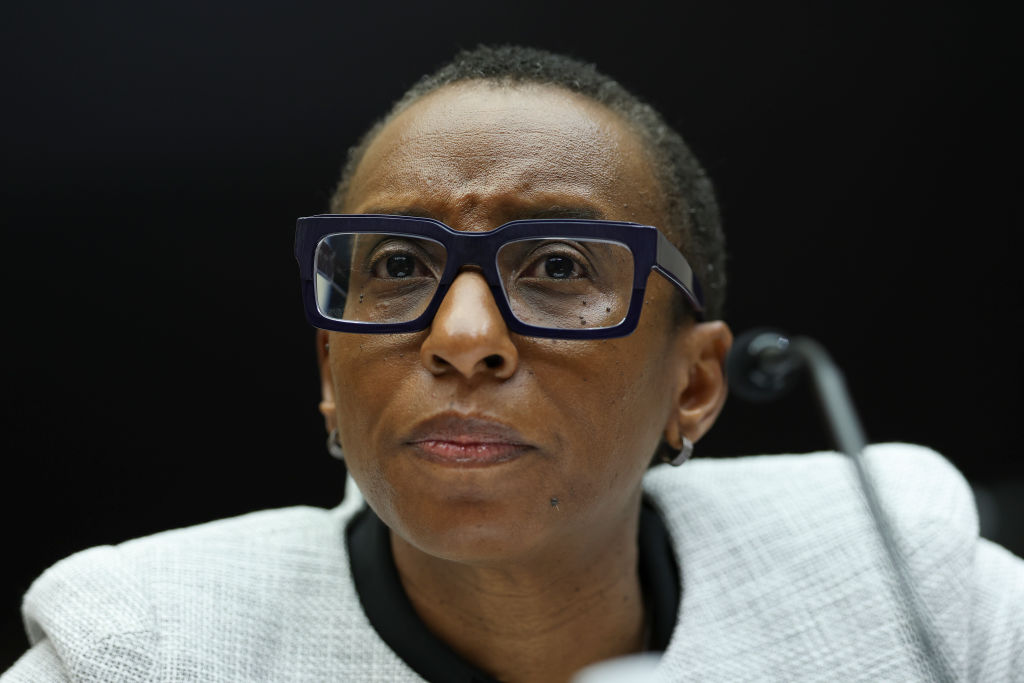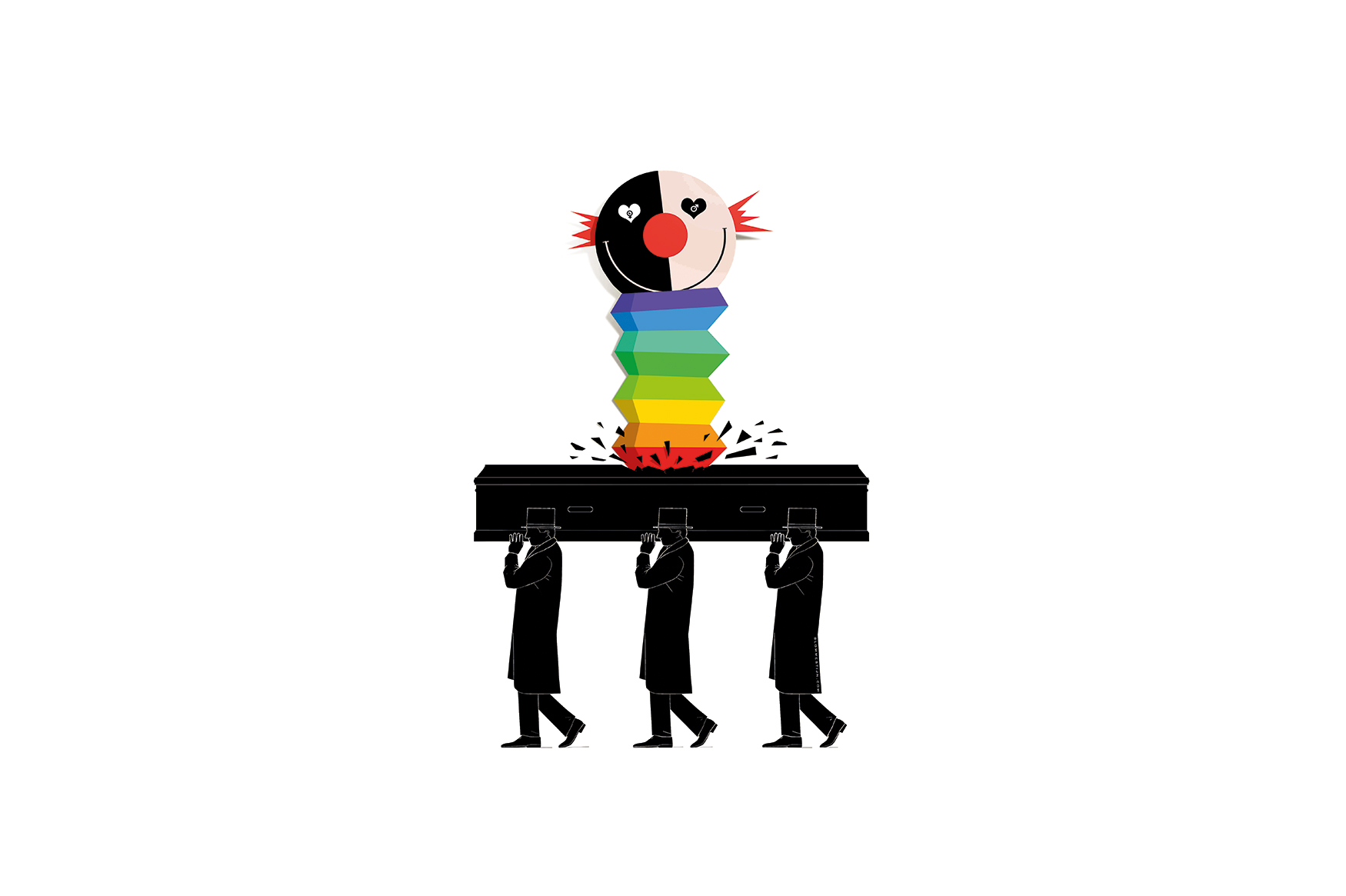Claudine Gay is a self-declared “transformational” president of Harvard University. She campaigned for the job by promising to retire the old Harvard of privilege and patrimony and to bring into being a new Harvard founded on principles of anti-racism and social justice. How is she doing?
At the moment, she is a bit distracted by allegations of plagiarism in her slim portfolio of publications. But she has a whole sea of troubles to take arms against. Let’s let her rest a moment on the shore and consider a small story from the not-always-illustrious past of America’s greatest university.
In 2007 Harvard admitted as a transfer student a young man, Adam Wheeler, who had completed his first two years at Bowdoin College in Maine. Adam had achieved a spectacular academic record at Bowdoin and would go to achieve comparable results as junior and senior at Harvard. But before he could graduate, Adam was exposed as a fraud who through a combination of plagiarism, forgery and arrant lying had faked his way through his whole undergraduate career. Julie Zauzmer, a reporter for the Harvard Crimson, provided the audacious nuts and bolts in her 2012 book, Conning Harvard.
How did Adam Wheeler get so far? He worked very hard at fooling people but, beyond that, he trusted that Harvard would never bother to double-check anything he submitted. His test scores were phony. His grades were doctored. His letters of recommendation were forged. And his essays were plagiarized. And he was right.
Wheeler’s luck ran out only when the chairman of the English Department, James Simpson, read his application for a Fulbright fellowship and discovered that Wheeler had stolen long passages from a book he knew well: Essays on General Education in Harvard College.
The main thing, besides plagiarism, that Claudine Gay shares with Adam Wheeler, is vaulting ambition. That’s the link between her stumbling over Hamas and her wayward borrowing of other people’s words.
In fact, this whole story is about words. The day after her disastrous testimony before the House Committee on Education and the Workforce, she began her apology saying, “Words matter.” Indeed they do, but perhaps truth matters more.
Gay was inaugurated as Harvard’s new president on September 29. In her inaugural address, “Courage to be Harvard,” Gay declared that Harvard’s purpose is “to question the world as it is and imagine and make a better one.”
Just over a week later, some 3,000 Hamas terrorists did indeed “question the world as it is” and imagined a better one could be brought about by an orgy of murder, rape and kidnapping. Their version of a “better world” was a place without Jews, and they hit a responsive chord with thirty-one Harvard student organizations. On evening of October 7 — the day of the attack — they issued their “Joint Statement by Harvard Palestine Solidarity Groups on the Situation in Palestine.”
This was awkward. President Gay had made it abundantly clear that she views herself as the ally of all who she deems to be victims of racism and oppression. Harvard, she said in her inaugural, must uphold “the collective courage of all those who walked that impossible distance, across centuries and dared to create a different future.” Among those walkers were Titus, Venus, Bilhah and Juba, “four enslaved people [who] lived and worked in Wadsworth House as the personal property of the president of Harvard University.”
Gay had been mining stories of institutional racism for many years before this. Her August 2020 letter as dean to the Harvard Faculty of Arts and Sciences laid out a complete program for overcoming “the devastating legacies of slavery and white supremacy” and implanting “racial justice” at Harvard. She declared that Harvard was suffering two pandemics: Covid and “white supremacy.” And she was the cure for the latter.
So on October 7, Gay’s natural affinity was with pro-Hamas students who declared they “hold the Israeli regime entirely responsible for all unfolding violence.” Settler colonialism, according to Hamas’s Western apologists, is the real problem. And those Jewish settlers, don’t you know, are “white.” So Gay’s initial response was to deplore violence but to say nothing about who were the perpetrators and who were the victims.
Presidents at some other universities were likewise twisting themselves into knots so as to stay on the good side of the pro-Hamas faction without offending Jewish students, faculty and alumni. Hypocrisy of this sort is not so much a tightrope to be walked as it is a bed of hot coals to be crossed. Forced to stand in one place for more than a few seconds, the firewalker ignites.
Which is pretty much what happened when Congresswoman Elise Stefanik asked Gay, University of Pennsylvania president Liz Magill, and MIT president Sally Kornbluth, “Whether calling for the genocide of the Jews constitutes bullying or harassment?” Each in succession gave the same answer, “It depends on the context.” It was an answer that might have warranted a passing grade on a logic exam. What doesn’t “depend on context?” But it was not an answer that was going to help Gay, Magill or Kornbluth traverse the hot coals. It was instantly clear to millions of Americans that the three were extremely reluctant to cross their pro-Hamas supporters or to condemn the wave of antisemitism that has broken out on campus.
While Gay was still in engulfed in her Hamas/antisemitism controversy, a seemingly new story broke. Christopher Rufo and Christopher Brunet published “Is Claudine Gay a Plagiarist?” documenting instances of plagiarism in Gay’s 1998 PhD dissertation at Harvard. A day later, Aaron Sibarium writing in the Washington Free Beacon documented her plagiarism in four journal articles published between 1993 and 2017. Harvard was not caught unaware. It had a polished excuse ready and waiting — waiting because Gay had learned at least some of what was coming back in October, and Harvard had appointed a special committee to “examine” the evidence.
The appointment of the committee bypassed Harvard’s regulations on how to deal with allegations of academic misconduct. It was pretty much a straightforward public relations exercise aimed at minimizing Gay’s culpability and giving the Harvard Corporation cover to declare that she would not be fired.
The cover-up committee explained that Gay was guilty of no more than a “few instances of inadequate citation.” That could happen. In my second paragraph in this essay I paraphrased Shakespeare where he has Hamlet pondering whether “to be or not to be,” by taking arms against a sea of troubles. I assumed anyone reading a Spectator article would catch it and a citation would have been ridiculously pedantic. Was that Gay’s situation?
Not hardly. Gay made a practice of lifting whole paragraphs and changing up a few words or phrases. Where the source she has copied has a mid-paragraph phrase “which is one description of bias,” Gay amends it to “which is one way to think about bias.” In another case, the source paragraph refers to “the torture and assassination of a black worker, Robson Silveira da Luz” which Gay rewrites as the “beating death of black worker, Robson Silveira da Luz.” The importance of these tiny changes is that show that, proof positive, Gay was not just leaving out citations to her sources but actively modifying the content.
What, you may well ask, is the point of making such tiny changes or, as she does elsewhere, rearranging the order of some phrases? The point I assume is to disguise the theft — to make it a little harder for a computer or a reader somewhat familiar with the material to recognize that the words have been twice-born.
Also, I’ve been involved with investigations of numerous cases of plagiarism over my career and I’m familiar with the pattern. Plagiarists often engage in such slight modification of the texts they steal. This must be partly a psychological matter: a way the plagiarist can tell herself that she didn’t “really” plagiarize because she changed things around.
A college freshman may well think this until she gets her first “F” for plagiarizing. But that leaves open the question of how someone can rise the position of president of Harvard University who has the ingrained habit of stealing other people’s words and ideas.
The possible answers to that aren’t pretty. One is that her teachers and colleagues recognized what she was doing and didn’t care. Another is that the community that Adam Wheeler bamboozled so easily was similarly bamboozled by Claudine Gay: no one ever bothered to look. Yet another answer is that Gay barely pretended to be a scholar. She published eleven journal articles from 1998 to 2016, all of them on racial politics, and all of them derivative other people’s ideas. This wasn’t even journeyman work, let alone the sort of writing that would have drawn close attention from busy scholars.
But then we are back to Gay’s signature strength. She is a tireless advocate of the Diversity, Equity and Inclusion movement. It is the carriage that brought her to the ball. And it is the solid link between her disheartening unwillingness to protect Jews from antisemitic threats of violence and her disheartening disregard for the standards of academic dishonesty.
It has been noted that as dean at Harvard, Gay presided over the forced withdrawal of twenty-seven students for “academic dishonesty,” mostly plagiarism. It has also been noted that Gay has been a strong supporter of “mandatory training” of students to teach them to avoid “using wrong pronouns” and other hurtful language that is tantamount to “violence.” So, yes, words really do matter at Gay’s Harvard. But not all words. Context does matter, as in “It’s not plagiarism if President Gay does it.” And, “Threatening to kill Jews is not harassment unless you actually attempt it.”
I don’t know if any of those twenty-seven students she expelled will now ask Harvard to apologize and make restitution. When Adam Wheeler’s case eventually went to trial, Harvard submitted a statement that said not only was the university a victim but (Zauzmer’s paraphrase) “public faith in institutions of higher education everywhere had been shaken by his actions.” Wheeler ultimately went to jail. Gay at the moment isn’t going anywhere. But she is teaching us a lot about the how corruption of words and the seductions of ideology go hand in hand.


























Leave a Reply